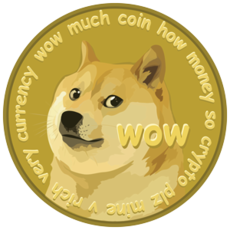Cognition
Big Science Needs Its Own Cryptocurrency
If people are going to do math problems, let them solve some useful ones.
Posted March 30, 2014

You have probably heard of Bitcoin, the zeitgeisty cryptocurrency with a risqué reputation. If not, it's a recent Internet-culture invention—a new fiat currency with no government behind it, just math (Im simplifying a bit here).
One of the key ideas behind Bitcoin is that you can mine for more coins by solving incredibly difficult math equations. This limits their supply but allows the supply of money to be somewhat flexible. Beyond that I don't really understand the economics of it, but let's accept that its a key element of the design of the currency.
The math problems get harder as more are mined, so that there is not an infinitude of Bitcoin. Problem is, Bitcoin is really hot and the math problems are now REALLY hard; regular people can’t afford to buy the computer hardware that will solve the problems. In response, a bunch of other cryptocurrencies have been invented with more solvable problems. Like Dogecoin, which is not supply-limited. Others include Peercoin, Mastercoin, Primecoin, and Ripple. There are hundreds of them, and currency exchanges, and all the other accoutrements. There's very little cost to starting a new cryptocurrency anymore.
Most people say Bitcoin was clever, but not there are already too many of these cryptocurrencies.
I say there’s room for one more. Let me propose Sciencecoinz.
If people are going to put a lot of computer cycles into solving super-hard math problems, they might as well be doing something useful at the same time.
There’s a lot of science problems that need more computer cycles dedicated to them. There's a class of problems that are important to solve and that can be solved only through extremely intensive brute force methods, but there's no elegant solution to them. For example, protein folding problems, drug design, and asteroid finding. Even scouring the large amount of signals coming in from outer space to see if aliens are contacting us. Many of these have directly measurable benefits to human welfare, like curing diseases.
A key idea of economics is that we want to create incentive-compatible systems, so that people will do the right thing without guilting them into it. Cryptocurrencies are basically set up to incentivize ambitious people to solve math problems. It's a match made in heaven.
One of the key elements of the design of a cryptocurrency’s math problems is that there’s no special shortcut one can take to exploit the system and make a zillion Dogecoins. That would crash the market, like if someone invented a way to turn rocks into gold. The problem with using science problems as a math problem is that someone might actually solve the protein folding problem. Yes, scientists have been working on it fruitlessly for decades, but it’s possible that, with millions of dollars at stake, and thousands of obsessive tech geeks thinking about it, someone will stumble across a solution.
I'm not worried. In fact, I say that’s actually the best case scenario. We’d have to design the cryptocurrency so that it isn’t destroyed if someone makes a major breakthrough, but that the solver is amply rewarded. Maybe place a limit on the rate of production, and generate some conditions such that if a solution, as defined by scientists, is uncovered, a new problem is introduced. If we get it just right, we’ll get tens of thousands of bright young minds working on some of the most important science problems of the day, instead of just playing Halo.
More speculatively, I propose that someone (maybe the NSF) creates a server with important science problems. People can apply to have their field's problems made into a "central problem" for Sciencecoinz, and if their application is approved, then some of the currency available to Sciencecoinz gets earmarked for that problem. Then there can be dozens or hundreds of problems at once, and if any one gets solved, the broader currency won't crash, but clever financiers can make a small fortune.
As a side benefit, Goldman Sachs will start looking to hire scientists who have been left in the cold from recent NIH and NSF funding cuts. This is the perfect time for Sciencecoinz.


